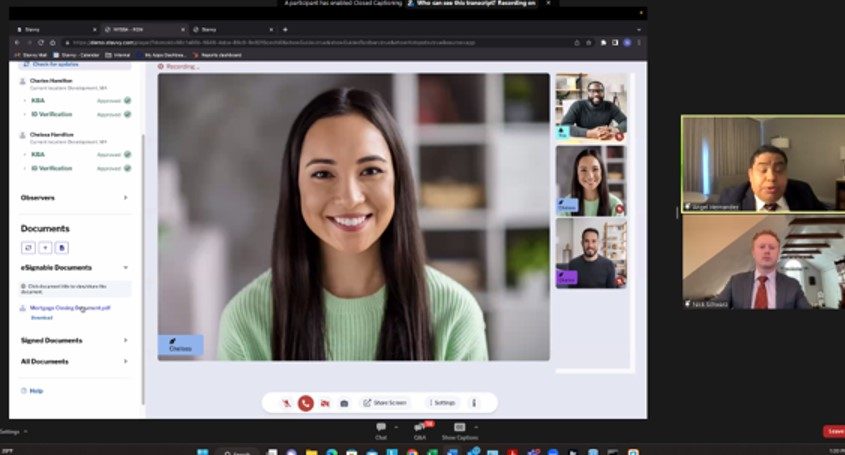Burdensome New Laws and Requirements Compel Nearly 900 Registrants to Access Webinar on Electronic Notarization
2.24.2023

Panelists addressed numerous concerns about new rules on electronic notarization during a New York State Bar Association Continuing Legal Education course on Thursday.
The obligations reach across every branch of law practice, which compelled nearly 900 registrants to attend the one-hour presentation on “Remote Notarization: What Lawyers and Notaries Need to Know About the Recent Changes.” The presentation focused on ethical considerations for manual and digital records retention and the process for notarizing and securely storing an electronic document.
“I know many of our members are unhappy about these rules. During the pandemic, we made efforts to streamline processes, but this new law has had the opposite effect,” said NYSBA President Sherry Levin Wallach during her opening remarks.
Levin Wallach added that she has formed a task force to address the changes, which will bring recommendations to the Executive Committee. The association will lobby the legislature and Secretary of State’s office to alter the new rules once a policy is set in response to concerns members have brought to the table.
In addition to the new rules adopted following the passage of Executive Law 135-c, remote online notarizations, which were allowed during the COVID-19 pandemic, will no longer be permitted. Instead, electronic notarizations using specific software will be allowed.
The greatest advantage of electronic notarization is that the principal (signer) may be anywhere in the world if the notary is physically present in New York State.
“Personally, I have clients who are in Israel and using this method while they are in Israel, I would be able to notarize a document that would be filed in New York,” said Michael A. Markowitz of The Law Office of Michael A. Markowitz, during his presentation.
“It will also allow a notarized document to be emailed. So if you’re doing a real estate transaction and the person signed a New York document in Guatemala, they will be able to email it to you. You’ll then be able to turn that around as long as you comply with the law and be able to file that with the county clerk,” Markowitz said.
But there is a heavy onus on the notaries who wish to engage in the process electronically.
The most prevalent and burdensome requirement of the new law is the provision, which went into effect Jan. 25, that requires all notaries, including those that only provide traditional in-person services to keep a journal of all notarial acts performed for 10 years. In addition, notaries who provide electronic notarial acts online must maintain an audio and video record for 10 years as well.
A third party that has the capability to securely archive an electronic notarial act and safely provide and verify encrypted digital signatures, along with software platforms to create digital certificates and seals, will most likely be needed to fulfill all electronic notarial act requirements.
Angel Hernandez, vice president and head of industry and regulatory affairs at Stavvy, wrapped up the presentation by navigating the step-by-step process of completing an electronic notarial signature through such an entity.
Earlier, Omid Zareh of Weinberg Zareh Malkin Price addressed the myriad ethical issues that arise with notarizations and the consequences that may befall those who do not keep adequate records or confirm the online presence and identity of a principal.
For those wishing to register and view this Continuing Legal Education Class in its entirety on demand, please go here.






